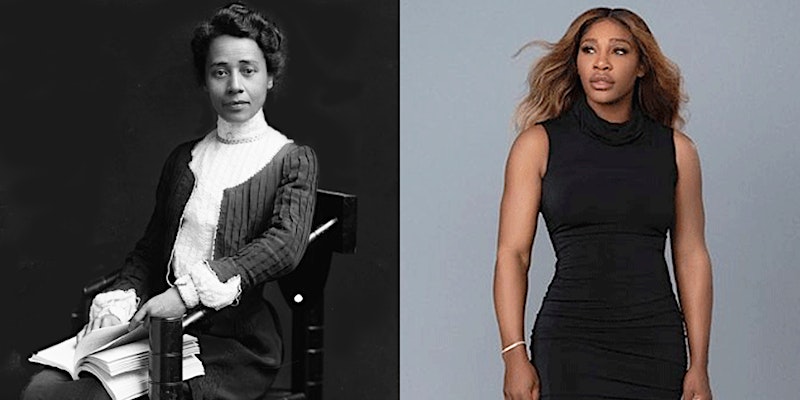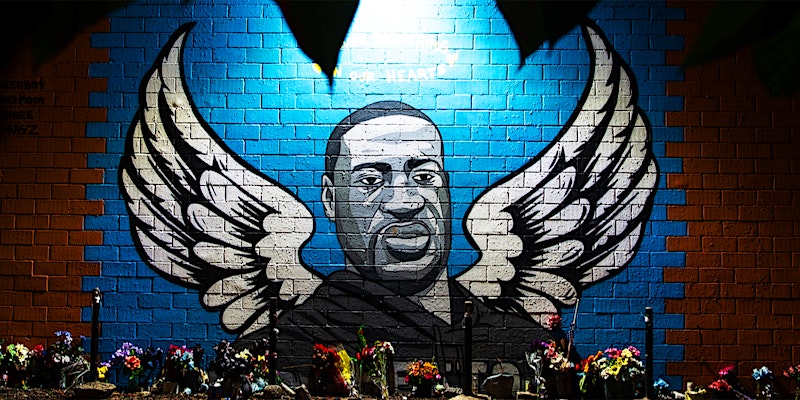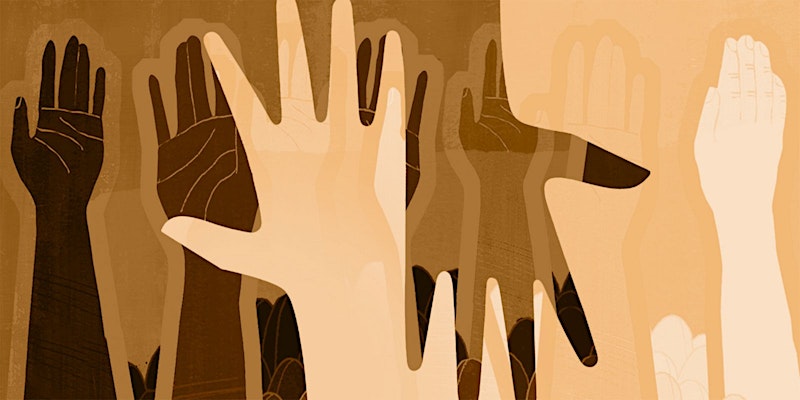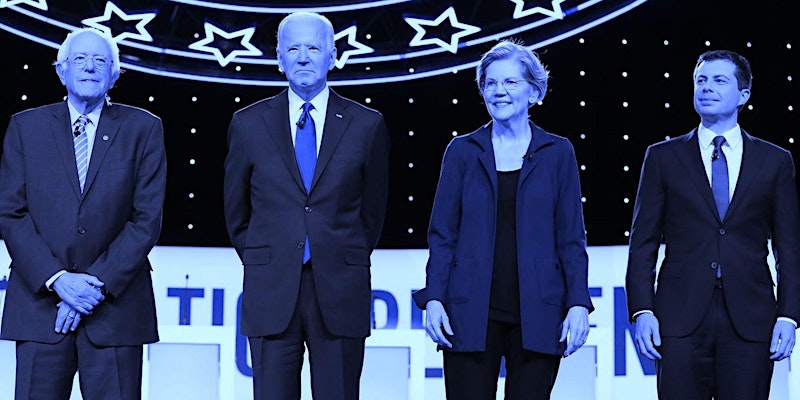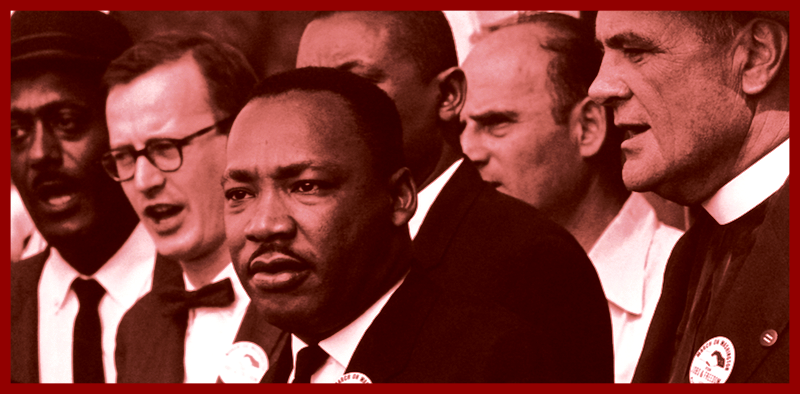
THE RACE AND POLITICS SERIES is an initiative to promote community dialogue and critical conversations about the significance of race and racism in politics, both in history and today. Through a variety of events that confront such topics as civil rights, activism, family dynamics, civic engagement, and more, the Race and Politics Series strives to bring together diverse communities, inclusive of all race-related affinity groups on campus, to engage in cross-cultural and interdisciplinary discussion about important and sometimes controversial issues pertaining to the role of race in democratic politics. Given the powerful role race plays in so many democracies today, the Race and Politics Series aims to illuminate a core aspect of the contemporary experience of democratic citizenship.
Past Events
Robbie Shilliam: "A Political Economy of Abolition"
Thurs. October 17, 4:30pm
PCPSE 250 (the Forum)

Robbie Shilliam is Professor of Political Science at Johns Hopkins University. His research focuses on postcolonial theory, the Black radical tradition, and the Rastafari movement. He is the author of multiple books including Race and the Undeserving Poor (Agenda Publishing, 2018) and Decolonizing Politics (Polity Press, 2021), as well as articles in journals including New Political Economy and Millennium.
Tom Pattiz will serve as discussant.
Beyond the Pale: Politics and the Political
Thurs. September 15, 4:30pm
PCPSE 250 (the Forum)
Salman Sayyid is currently Professor of Rhetoric and Decolonial Thought at the University of Leeds, and Head of the School of Sociology and Social Policy.[1] He is the author of the ground-breaking work A Fundamental Fear and Reclaiming the Caliphate. He pioneered Critical Muslim Studies. He is the author of numerous works on political theory and its interface with the post-Western and is the founding editor of ReOrient: The Journal of Critical Muslim Studies.[2]His work has been translated into nearly a dozen languages.
Note: This workshop meeting is taking the form of a lecture, and as such there is no discussant or paper to circulate. However, Dr. Sayyid has offered the following abstract:
Is the political inherently Western, as suggested by the etymology of the term and claimed by generations of politicians, philosophers, journalists, and historians? We are familiar with the proposition that divides people into those with and those without history. While this Eurocentric proposition is contested in many academic circles, it remains pervasive in various aspects of life, including news reporting, policy-making, travelogues, movies, and other cultural vectors through which we understand the world. In this view, history is always made in the West. An aspect or manifestation of the division between people with and without history is the claim of a Western patrimony over politics and, more crucially, the political itself. There are voices who argue that if the political is the poisoned fruit of European colonial-racial worldmaking, a proper decolonial response might be to reject the political entirely. Such a conception understands the political as being an integral part of the global imposition of violent hierarchies by the West’s colonial-racial enterprise.
In this presentation, I intend to build on the many excellent studies that show politics as an activity located in spaces and histories beyond the West by examining the political within politics and investigating the possibility and desirability of the political beyond the pale.
White Public Sentiment and Black Political Agency: Wells on Knowledge and Political Action
Thurs. April 11, 4:30pm
PCPSE 250 (the Forum)

Jennie Ikuta is Assistant Professor of Political Science in the Truman School of Government & Public Affairs and the Kinder Institute on Constitutional Democracy. Her research focuses on the role of moral psychology in politics, especially in 19th- and 20th-century political thought. She is the author of Contesting Conformity: Democracy and the Paradox of Political Belonging (Oxford University Press, 2020) and has published articles in journals including Constellations and Philosophy & Social Action.
The Future of DEI? A Conversation with Michelle Kimberly Johnson
Wed. February 28, 3:00pm
Virtual Event: Zoom

Join us for a discussion on the future of Diversity, Equity, and Inclusion (DEI) in educational spaces. MICHELLE KIMBERLY JOHNSON, Associate Director of Inclusive and Equitable Learning at the Penn Center for Excellence in Teaching, Learning, and Innovation (CETLI), will be sharing insights into the historical significance of DEI. Johnson will dissect the shifting landscape of DEI amidst mounting politicization.
In a conversation moderated by political science graduate student YARA DAMAJ, this dialogue will confront the complexities of nurturing inclusive university environments.
Race Making as Waste Making: Eco-facism in the Making
Thurs. November 30, 4:30pm to 6:00pm
133 S. 36th Street, Room 250 (The Forum)
Free and open to the public / Food Provided
PJ Brendese is an Associate Professor of Political Theory at Johns Hopkins University. His research focuses on critical race theory, comparative political thought, decolonial theory, Indigenous political thought, environmental racism, and the politics of memory and temporality. Professor Brendese is the author of The Power of Memory in Democratic Politics (Rochester, 2014) and Segregated Time (Oxford, 2023), as well as various articles in journals including Political Theory, Contemporary Political Theory, and Theory & Event.
Clancy Murray will serve as discussant.
South African Constitutionalism, Past and Present
Mon. November 6, 5:30pm to 6:30pm
133 S. 36th Street, Room 250 (The Forum)
Free and open to the public / Food Provided
Please register here.

ANDRÉ ODENDAAL JOINS THE MITCHELL CENTRE'S RACE AND POLITICS SERIES to discuss two of his award nominated books, The Founders (2013) and Dear Comrade President: Oliver Thambo and the Foundations of South Africa's Constitution (2022). With perspectives from either end of the 20th century, these books explore the critical role of Black intellectuals in constructing South Africa's past and present constitutional culture. This history provides a critical context for contemporary debates about the role of constitutionalism in today's politically contentious world.
André Odendaal is a Vice-Chancellor's Writer-in-Residence at the University of the Western Cape (South Africa) Centre for Humanities Research. He has over 40 years of experience as a historian, author and political activist. He has also written extensively on sports in South Africa and served as the founding director of the Robben Island Museum World Heritage Site. More information is available at andreodendaal.info/about-us.
Identifying the Democratic Character in Black Autobiographical Writing
Jared Loggins is an Assistant Professor of Black Studies and Political Science at Amherst College. His research areas include political theory, religious studies, historiography and intellectual history, Black studies, philosophy of race and racism, and aesthetics with special attention to the conceptual resources these fields offer in theorizing Black social life and resistance within and beyond capitalism. Professor Loggins is the co-author of Prophet of Discontent: Martin Luther King Jr. and the Critique of Racial Capitalism (Georgia, 2021).
Nora Reikosky will serve as discussant.

LATINA SUPPORT FOR THE GOP AND DONALD TRUMP is often treated as a contradiction in terms, given the xenophobic and anti-feminist stances of modern conservatism. CRISTINA BELTRÁN, whose work is situated at the intersection of Latino politics and political theory, delves deeply into the paradoxical nature of Latina conservatism and right-wing Latinidad. Arguing that conservative thought within Latino communities is shaped not only by ideology but through a potent combination of emotion and expression, she explores how conservative Latino elites seek to engage Latino voters' aesthetic and affective sensibilities. This event is held in partnership with the Penn Political Theory Workshop.
Black Dignity: A Conversation with Vincent W. Lloyd
View a video of the event here.

In his new book, VINCENT W. LLOYD (Villanova University) delineates a new concept of Black dignity, yet one with a long history in Black writing and action. Previously in the West, dignity has been seen in two ways: as something inherent in one’s station in life, whether acquired or conferred by birth; or more recently as an essential condition and right common to all of humanity. In what might be called a work of observational philosophy—an effort to describe the philosophy underlying the Black Lives Matter movement—Vincent W. Lloyd defines dignity as something performative, not an essential quality but an action: struggle against domination. Without struggle, there is no dignity. He defines anti-Blackness as an inescapable condition of American life, and the slave’s struggle against the master as the “primal scene” of domination and resistance. Exploring the way Black writers such as Frederick Douglass, Langston Hughes, and Audre Lorde have dealt with themes such as Black rage, Black love, and Black magic, Lloyd posits that Black dignity is the paradigm of all dignity and, more audaciously, that Black philosophy is the starting point of all philosophy. Moderated by HADASS SILVER (Penn Political Science).
The Darkened Light of Faith: Race, Democracy, and Freedom in African American Political Thought

In his new book, MELVIN ROGERS (Brown University) explores how African Americans understood American democracy in the nineteenth and twentieth centuries, amid their own social and political exclusion. How did they think about democracy so as to make sense of and render intelligible their appeals to the polity? Rogers argues that focusing on this question gives us new insight into the tradition of African American political thought and enriches our understanding of democracy as a way of life. Some of the key figures in the book include David Walker, Hosea Easton, Martin Delany, Frederick Douglass, Ida B. Wells, W. E. B. Du Bois, Ralph Ellison, Billie Holiday, and James Baldwin. This event is held in partnership with the Penn Political Theory Workshop.
Race, Gender, Rights, and the Politics of Black Ladyhood
The PENN POLITICAL THEORY WORKSHOP and the MITCHELL CENTER welcome KEISHA LINDSAY,associate professor in the Departments of Gender & Women's Studies and Political Science at the University of Wisconsin-Madison, to discuss a paper connected to her new book project. Black Ladies and the Art of Resistance: Intellectuals, Athletes, and Beauty Queens examines the writing and rhetoric of black Jamaican and African American women who regard themselves as ladies or as persons who epitomize all that is traditionally feminine. Her research focuses on two groups of black women. One group is comprised of late 19th century and early 20th century educators and civic leaders - including African American feminist Anna Julia Cooper and Jamaican social worker Amy Bailey – who regarded their lady-like decorum and charity as important means of uplifting oppressed black people. The second group includes contemporary African American tennis star Serena Williams who regularly adorns herself in cocktail dresses, high-heels, fur coats, and diamond jewelry as well as Zahra Redwood, a bikini-wearing Rastafarian and Jamaica’s 2007 representative to the “Miss Universe” contest.
Black Ladies and the Art of Resistance both embraces and complicates the existing feminist literature on traditional gender performance. Cooper, Bailey, Redwood, Williams, and other self-defined black ladies demonstrate, as many feminist scholars argue, that performing conventional femininity can challenge patriarchal and other oppressive understandings of who is rational, moral, or otherwise fit to participate in democratic life. At the same time, self-defined black ladies challenge three assumptions in the present scholarship on the politics of femininity: that racism makes conventional femininity unavailable to black women; that black women who embrace such femininity perpetuate the Eurocentric, patriarchal assumption that “real” women belong in the home; and that examining white women is the only valid means of demonstrating the feminist potential of being a “lady.”
Magic Actions and Abolitionist Organizing: Politics after George Floyd
IN HIS RECENT PIECE, "MAGIC ACTIONS," on the George Floyd Rebellion, writer and scholar TOBI HASLETT writes of prison and police abolition, “Behind even the most sparkling policy initiatives lies the knowledge that a world without police and prisons can only follow from ruthless criticism and transformation of every piece of the social whole. This is a revolutionary project.” As part of the RACE & POLITICS series at the Andrea Mitchell Center for Democracy, Haslett joins #CopsOffCampus organizer DR. CHARMAINE CHUA and Police Free Penn members JAKE NUSSBAUM and ANDRÉS GONZÁLES-BONILLAS to talk about the rebellion a year later and the future of abolition. The conversation will focus on the role of black struggle in politics today, the emancipatory vision of abolitionist politics, and the role of campus organizers in these struggles. This event will be moderated by M. EDITH SKLAROFF.
Publication - Safundi: "Trump, Zuma, and the Grounds of US-South African Comparison"

THE MITCHELL CENTER'S RACE AND POLITICS SERIES is proud to support the publication of a special issue of Safundi, a journal of comparative analysis of the United States and South Africa, that examines "Trump, Zuma, and the Grounds of US-South African Comparison." As Penn English Professor and issue editor RITA BARNARD notes in her introduction, when Trump emerged as the victor in the 2016 American presidential election he was a familiar type to South African observors: an African strongman and, specifically, a "white Jacob Zuma." The parallel reveals the "underlying tectonics of the global economic and political configurations that made their power and corruption possible." This theme is elaborated in nine articles that include examinations of "Thugocracy," "What can learn from the Gupta brothers," "Crowned Anarchy," and "Big Man Sovereignty and Sexual Politics in Pandemic Time." In the issue's Acknowledgments, Barnard "gratefully acknowledges the institutional support of the Andrea Mitchell Center for the Study of Democracy at the University of Pennsylvania and especially the director, Jeff Green, who instantly grasped the possibilities of this project and offered encouragement throughout the process."
The full issue is available onine to Penn affiliates here. We are also providing links to Professor Barnard's Introduction and Anne-Maria Makhulu's essay, "Trump, Zuma, Brexit: Anti-Black Racism and the Truth of the World."
Checking Your Privilege? Perspectives on the Politics of White Identity
View a video of the event here.
The Andrea Mitchell Center's RACE AND POLITICS SERIES presents:
EDUARDO BONILLA-SILVA (Sociology and African & African American Studies, Duke University)
ASHLEY JARDINA (Political Science, Duke University)
WALTER BENN MICHAELS (English, University of Illinois at Chicago)
HADASS SILVER (Political Science, University of Pennsylvania)
THE NOTION THAT WHITE PEOPLE ARE UNITED by common social and political identities and shared privileges has become increasingly popular among activists, politicians, and academics over the past half-century. Proponents of this notion frequently argue that white identity and white privilege must be confronted and reckoned with in order to combat racism and dismantle racist institutions. Those who push back on the idea that white people share culture, perspectives, and advantages, argue that the lenses of white identity and white privilege actually obscure the material basis of contemporary racism and hamper efforts to achieve racial equality. This panel brings together scholars from across academic disciplines to discuss the political impact of these divergent perspectives and to explore whether the study of white identity and white privilege will help or hinder the realization of greater racial equality.
The Party of Lincoln? A Post-Election Conversation with Tara Setmayer and Rogers Smith
View a video of the event here.
As part of the Mitchell Center's Race and Politics series, presented in a partnership with BGAPSA, CNN commentator TARA SETMAYER sits down (virtually) with Penn Political Science professor ROGERS SMITH to discuss fallout from the 2020 Election, in particular its impact on the identity of the Republican Party. Does the party need to expand its appeal to historically marginalized groups? Can it fashion new and more inclusive narratives of national belonging? Or has the demographic configuration of American politics become too entrenched to alter? Their discussion will be followed by Q&A from the webinar audience.
TARA SETMAYER is currently a CNN Political Commentator, Contributor to ABC News and former GOP Communications Director on Capitol Hill. She has appeared on ABC's The View, ABC's Good Morning America, and on HBO's Real Time with Bill Maher. Setmayer was named as a Harvard Institute of Politics Spring 2020 Resident Fellow. She has joined The Lincoln Project as a Senior Advisor. In 2017, Setmayer was named as a board director for Stand Up Republic, a non profit organization formed in the wake of the 2016 election of Donald Trump to unite Americans behind the defense of democratic norms, ideals and institutions.
ROGERS SMITH is Christopher H. Browne Distinguished Professor of Political Science. He is the author of That Is Not Who We Are! Populism and Peoplehood (2020). His research centers on constitutional law, American political thought, and modern legal and political theory, with special interests in questions of citizenship, race, ethnicity, and gender. He was elected as an American Academy of Arts and Sciences Fellow in 2004, a Fellow of the American Academy of Political and Social Science in 2011, and a Member of the American Philosophical Society in 2016. Professor Smith was President of the American Political Science Association for 2018-2019.
The Place of Race in the Democratic Primaries (Jamelle Bouie)
EVEN AS IT SEEKS TO ENTER THE 2020 ELECTION united around the goal of defeating President Trump, the Democratic Party is working through longstanding issues of policy, politics, and identity during the primaries. How has (or hasn't) race factored into these debates so far, and how might it affect the ultimate selection of a nominee? JAMELLE BOUIE, who has been a thoughtful commentator on the intersection of race and politics through several election cycles, leads what promises to be a far-ranging conversation on these and other issues surrounding the 2020 elections.
JAMELLE BOUIE, based in Charlottesville, Virginia and Washington D.C., is a columnist for the New York Times and political analyst for CBS News. He covers campaigns, elections, national affairs, and culture. Prior to the Times, he was chief political correspondent for Slate magazine. And before that, he was a staff writer at The Daily Beast and held fellowships at The American Prospect and The Nation magazine.
Revolution is the Solution: Art, Activism, and Organizing (Boots Riley)
THE PROVOCATIVE AND PROLIFIC POET, SONGWRITER, producer, screenwriter, director, community organizer, and public speaker BOOTS RILEY will talk about his film, Sorry to Bother You (2018), a comedy fantasy sci-fi film that raises issues of race, labor, and social movements. Fervently dedicated to social change, Riley was deeply involved with the Occupy Oakland movement. He was one of the leaders of the activist group The Young Comrades. He is the lead vocalist of The Coup and Street Sweeper Social Club, and he is the author of the critically acclaimed Tell Homeland Security—We Are the Bomb.
In advance of the April 3 event, join us for a free screening on March 22 at 4:00pm at the Institute of Contemporary Art, University of Pennsylvania, 118 S. 36 Street.
Organized by: Penn Social Justice/ Global South. Co-sponsors: Penn Cinema & Media Studies, Sachs Program for Arts Innovation, Annenberg School for Communication, Andrea Mitchell Center for the Study of Democracy, Wolf Humanities Center, Center for Programs in Contemporary Writing, Annenberg Media Activism Research Collective, History of Art Department, Dept. of English, Provost Campaign for Community, Drexel Women's and Gender Studies, Temple Film Media Arts. Sponsor: Evil Twin Booking Agency.
Asians, Blacks, and Affirmative Action (Claire Jean Kim)
READ AN ESSAY BY PROF. KIM HERE
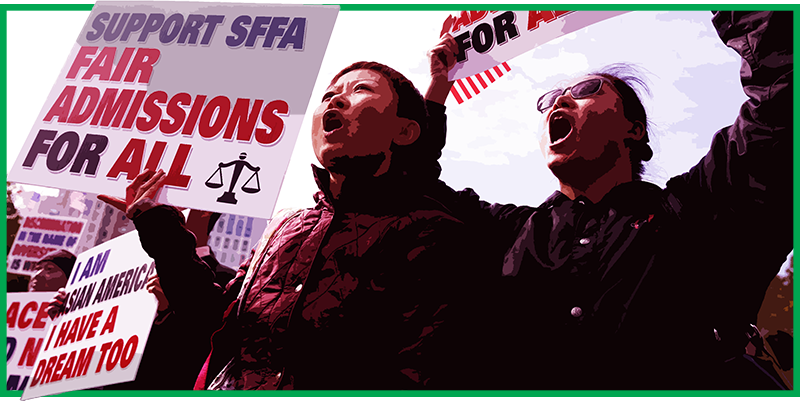
IN THE WAKE OF THE HARVARD DISCRIMINATION TRIAL conducted in the Boston Federal District Court, BGAPSA invites the Penn community to join a conversation about race in higher education led by Claire Jean Kim (UC-Irvine). The discussion will explore the ways in which our current conceptions of discrimination and diversity have shaped, and arguably misshaped, debates over racial justice.
CLAIRE JEAN KIM is Professor of Political Science and Asian American Studies at the University of California, Irvine. Her first book, Bitter Fruit: The Politics of Black-Korean Conflict in New York City (Yale University Press, 2000) is the recipient of the American Political Science Association's Ralph Bunche Award for the Best Book on Ethnic and Cultural Pluralism and a Best Book Award from the American Political Science Association Organized Section on Race, Ethnicity, and Politics. Her second book, Dangerous Crossings: Race, Species, and Nature in a Multicultural Age (Cambridge University Press, 2015), is the also the recipient of a Best Book Award from the American Political Science Association Organized Section on Race, Ethnicity, and Politics. Dr. Kim has written numerous journal articles, book chapters, and essays, and she is co-editor of a special issue of American Quarterly entitled Species/Race/Sex (2013). She is the recipient of a grant from the University of California Center for New Racial Studies, and she has been a fellow at the Institute for Advanced Study in Princeton, New Jersey and the University of California Humanities Research Institute. She is currently writing a book entitled Asian Americans in an Anti-Black World.
Fifty Years After MLK: Dinner and Dialogue
The Politics of Hue (Ufuoma Abiola)

THIS EVENT WILL EXPLORE THE VARIOUS WAYS in which colorism affects African Americans and provide ways to address the phenomenon. Colorism is defined as the allocation of privilege and disadvantage according to the lightness or darkness of one’s skin. Join Dr. Ufuoma Abiola for a discussion on the Politics of Hue.
UFUOMA ABIOLA is Associate Director of Academic Affairs and Advising at The Wharton School, University of Pennsylvania (Penn). She is also a Lecturer at the Graduate School of Education (GSE) and the School of Arts & Sciences at Penn. Dr. Abiola completed an Ed.D. in Higher Education at Penn, where she also earned an M.S.Ed. in Higher Education along with the Certificate in College and University Teaching; Graduate Certificate in Gender, Sexuality, and Women's Studies; and the Graduate Certificate in Africana Studies. She also received an M.A. in Clinical Psychology with the Graduate Certificate in Clinical Child and Family Studies from Roosevelt University; and earned a B.A. in Psychology with a minor in African and African Diaspora Studies from Boston College. Dr. Abiola’s dissertation, which explores colorism and Black Ivy League undergraduates, won a 2018 Dissertation of the Year Award from the American Association of Blacks in Higher Education (AABHE). With a passion for diversity, equity, and inclusion issues in higher education, Dr. Abiola is the Founder, Creator, and 2012-2017 President of We Support Diversity of Mind (WSDM) at Penn GSE. Dr. Abiola is also Co-Creator of the Wharton Successful Transition & Empowerment Program (STEP) at Penn. She has published numerous scholarly works, presented at many national conferences, and received multiple awards.
Having Difficult Conversations with Family About Race, Racism and Politics

JOIN US FOR THE FIRST EVENT of the Andrea Mitchell Center's Race and Politics Series with BGAPSA, hosted by BGAPSA and Students Confronting Racism and White Privilege (SCRWP). “Having Difficult Conversations with Family About Race, Racism and Politics” is a dinner and discussion where attendees will break into groups based on racial affinity to discuss separately the barriers to addressing race-related issues with family and overcoming complicity. Then the groups with come together as a whole to address the unique dynamics surrounding issues of race and politics. The evening will conclude with a debrief on conversational dynamics in multi-racial spaces.
Our aim is to cultivate an environment of mutual respect and honesty at this event, where participants are willing to challenge the racism both within themselves and expressed by others. We will provide refreshments and facilitated discussion.

 The Andrea Mitchell Center for the Study of Democracy
The Andrea Mitchell Center for the Study of Democracy

